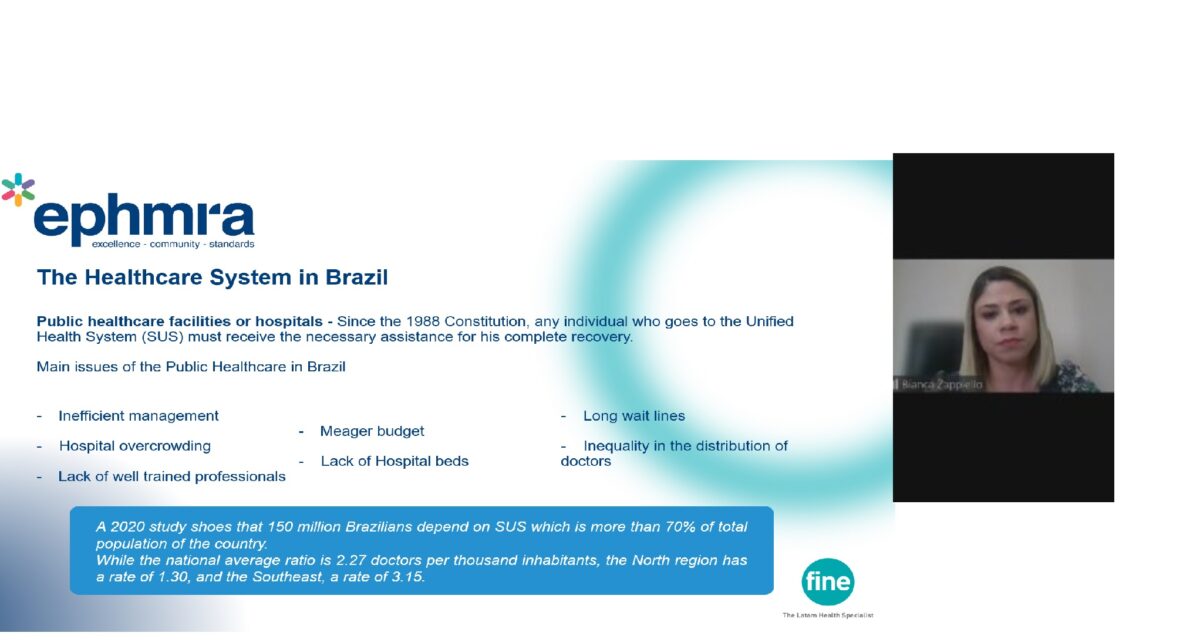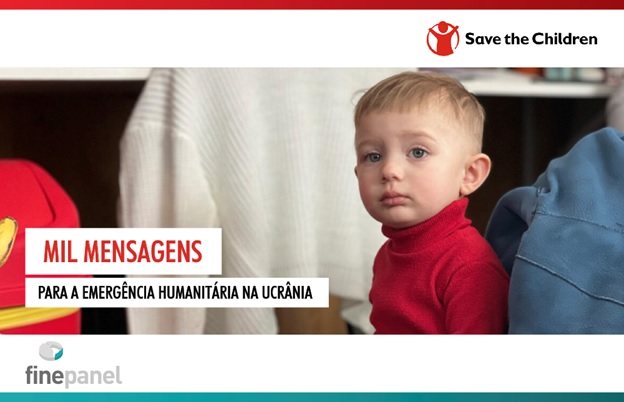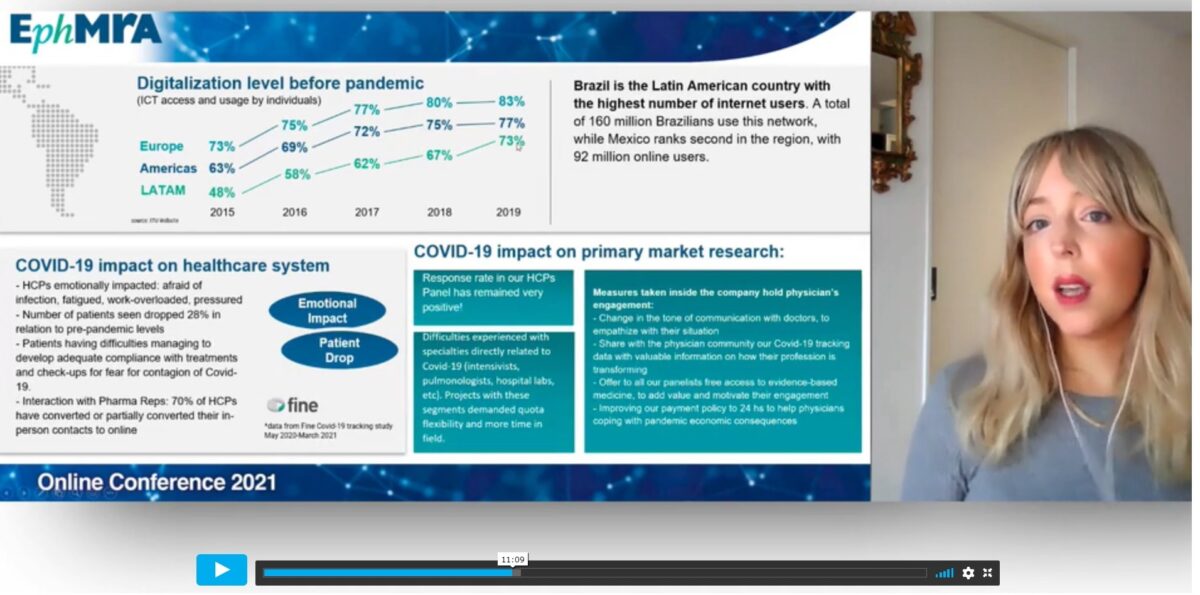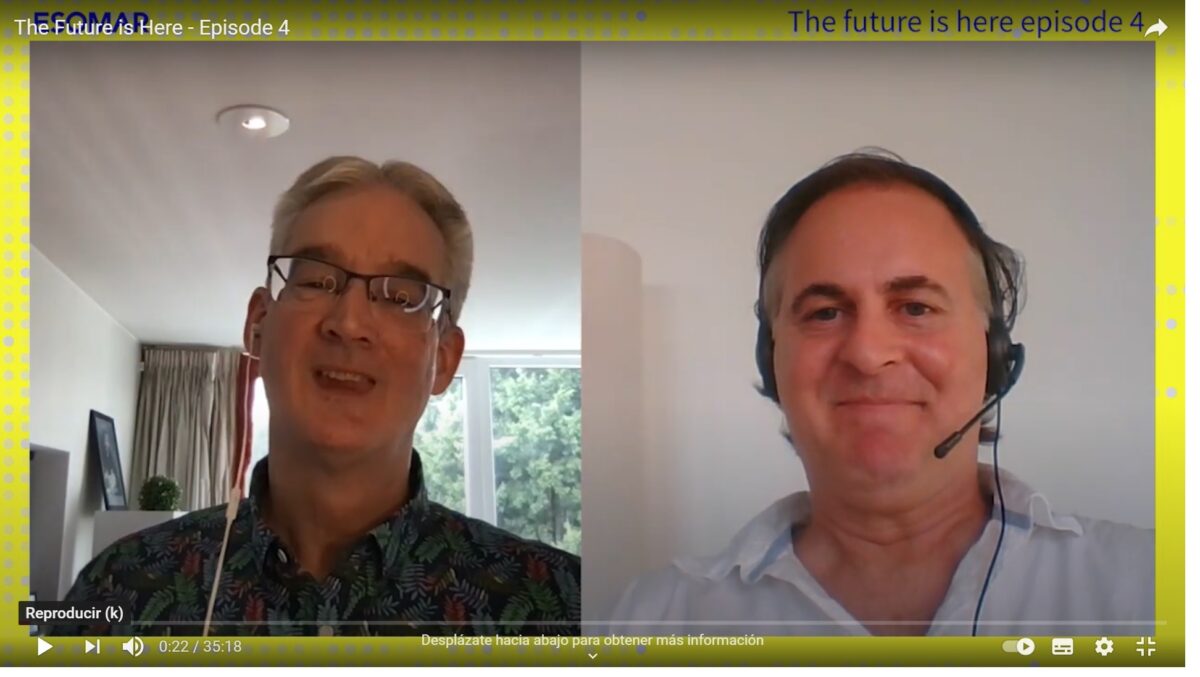News
Fine´s CEO, named as a Legend by Insight250
We have been delighted and honoured to learn that, Fine´s CEO, Diego Casaravilla, has been selected for the inaugural Insight250 Legends honor.
The announcing message from Insights 250 detailed:
“Over the last three years, Insight250 has reached tens of millions of individuals, featuring leaders and innovators across the insights and market research industry worldwide. The new Insight250 Legends honor insight industry experts who have made long-standing, indelible impacts on the industry and beyond through leadership, commitment, or other contributions.”
As shared in the enclosed picture all nominees had their name laid, in a star, in pride of place at the entrance to the ESOMAR Congress in Amsterdam. A ballot followed the nomination and the legends were voted by over 20,000 members of the industry.
Diego shared: “I am thrilled to have been named an Insight250 Legend in the inaugural edition of this prestigious award! Trying to figure out how I end up here, I feel it as a recognition for representing the passion for quality data collection work in our corner of the world. And more than just a personal achievement, but the result of the collective efforts of our team at Fine Research. “
The list of Insight250 Legends recognized remarkable industry leaders also included:
Fiona Blades, Simon Chadwick, Melanie Courtright, Tom De Ruyck, Ben Page, Caroline Frankum, Dan Quirk, Pravin Shekar, Sir Martin Sorrell, Urpi Torrado, Alain Mizrahi, Mariela Mociulsky, Alejandro Garnica, Claudio Flores Thomas, Patricio Pagani, Laura Ruvalcaba, Jane Frost CBE Stephan Gans, Michelle Gansle, Colin Strong, Wim Hamaekers, Alex Hunt Sinead Jefferies, Sally Joubert Ed Keller, Umesh Kumar, Christian Kurz, Nikki Lavoie, Bon Lederer, Jean-Marc Leger, Pete Markey, Ronald Abold, Seyi Adeoye, Dangjaithawin (Orm) Anantachai, Paul Baines, Nick Baker, Zak Mitali, Sharmila Das, Lucy Davison, Chowhan, Justine Clements, Tony Costella, James Endersby, Chris Farquhar, Brian Fine, Andrea Rademeyer, Vijay Raj, Imogen Randell, Elaine,Rodrigo, Zoe Ruffels, Danny Russell, Aileen Te Tan, James Turner, Kingsley Wheaton, Grace Yu, Andy Zhao
Read More
Fine Research Survey Reveals Healthcare Practitioners’ Perceptions of AI
CLICK HERE TO DOWNLOAD FULL REPORT
Fine Research is pleased to announce the release of a comprehensive report about IA Impact in HCP practice in Latin America and Spain.
This large sclae survey, encompasses 1352 healthcare practitioners to gain insights into how healthcare professionals perceive artificial intelligence (AI) and its potential impact on their professional practices.
This survey initiative is a part of Fine Research’s corporate social responsibility program. It represents an effort to engage with a public interest topic, conducted independently of any specific client, with the intention of fostering discussion and knowledge-sharing within the medical and insights communities.
Furthermore, this project contributes to social impact by linking each HCP survey response to a donation to the Save The Children program, aimed at supporting indigenous communities in Oaxaca, Mexico.
AI in Healthcare
Healthcare practitioners, while possessing a degree of familiarity with AI, primarily associate this technology with various applications in their daily lives. However, only a minority of HCPs are actively acquainted with AI’s current use in their professional domain. Presently, the most prevalent application of AI in healthcare is the utilization of virtual chatbots, with ChatGPT being a notable example.
To investigate the potential efficacy of AI as a support tool, a small-scale experiment was conducted. Four oncologists and ChatGPT were asked to provide insights on the future of oncology. Subsequently, the 1352 participating physicians were presented with these responses and asked to identify the one they deemed most suitable. Remarkably, ChatGPT generated an answer that was perceived by participants as equivalent to those from oncology specialists, with ChatGPT’s response and one oncologist’s response receiving the highest ratings. Interestingly, the majority of doctors were unable to distinguish between AI-generated and human-authored responses. Those who correctly identified ChatGPT’s response often did so based on its perceived level of elaboration, while those who missed tended to consider it too well-crafted to be algorithmically generated.
The survey’s experiment, involving AI-generated responses and human specialists’ insights, demonstrated that AI can produce responses that are on par with those from domain experts, often leaving healthcare practitioners unable to differentiate between the two. This intriguing finding underscores the potential of AI to assist and augment medical decision-making.
While physicians exhibit a strong belief in AI’s transformative potential within their specialty, they maintain a cautiously optimistic outlook on its benefits. Consequently, they express a strong desire for training to equip them for the integration of this technology into their medical practice.
However, some concerns remain. Physicians are apprehensive about the potential interference of technology in their patient relationships, including the risks associated with self-diagnosis and the erosion of the physician-patient bond. A secondary concern pertains to the possibility of diagnostic or treatment errors due to technology or its misuse, leading to challenges in determining responsibilities, establishing regulatory policies, and addressing uncertainties in the event of potential harm.
Awareness of privacy breaches and concerns related to algorithm-associated discrimination and disparities in access also exist among healthcare practitioners.
Overall, healthcare practitioners advocate for a cautious approach to AI integration in medicine, with only a minority holding either enthusiastic or hypercritical positions. Notably, there are regional variations, with Spanish HCPs being more inclined to support AI development, while Latin American HCPs express more reservations. Similar differences are observed by medical specialty, with fields such as Oncology, Rheumatology, and Cardiology displaying heightened interest.
AI in the Pharmaceutical Industry
Healthcare practitioners consider AI’s most promising application in the pharmaceutical sector to be in the discovery of new medications. Additionally, AI’s use in the design and execution of clinical trials, with the potential to accelerate timelines and facilitate personalized precision medicine, garners significant interest.
Conversely, the use of chatbots or virtual platforms for direct patient interaction appears to be less appealing to HCPs. While there is a demand for AI training, not all physicians believe that the pharmaceutical industry should take the lead in providing such training. Brazilian physicians, in particular, exhibit a lower level of receptiveness to this idea.
Furthermore, most healthcare professionals anticipate a significant transformation in sales representative visits facilitated by AI. This transformation presents both positive aspects, such as AI’s ability to identify personalized treatment recommendations, and potential drawbacks, including the weakening of professional relationships.
Conclusion: Embracing AI in Healthcare with both Caution and Optimism
In conclusion, the survey conducted by Fine Research sheds light on the perceptions of healthcare practitioners regarding the integration of artificial intelligence into their professional lives.
As the healthcare community navigates the evolving landscape of AI, the survey results suggest that a cautious approach is favored, with an emphasis on ethical considerations, responsible use, and continued professional development. Striking the right balance between embracing AI’s potential and addressing its associated challenges will be crucial in shaping the future of healthcare.
Click HERE to download the detailed results
Read More
Healthcare Research in Brazil and Argentina – An EphMra webinar run by Fine
London, Sao Paulo, Buenos Aires, October 2022,
Is it possible to use an English speaking moderator in Brazil? How can you access patients in Argentina? What is unique about the healthcare systems in these countries?
These and many other queries were addressed during a webinar hosted by Bernadette Rogers (European Pharmaceutical Market Research Association- EphMRA), with content prepared by Bianca Zappiello (Fine Brazil) and Florencia Rojo (Fine Argentina), in order to expose the main challenges and opportunities when researching these markets.
Content included discussions around
– Healthcare Systems
– Telemedicine
– Virtual fatigue and drives towards in-person connections
– Hints and tips for global market researchers
The event triggered many question in the final Q&A section, showing the interest of global researchers to better understand the local cultures and associated implications for their research designs.
To get a free summary copy of the presentation please write to Florencia Rojo (frojo@fine-research.com).
You can learn more about EphMRA learning opportunities and events clicking here
Read MoreStanding for Quality at ESOMAR 2022
Toronto, September 2022.- A very enlightening panel discussion was held during ESOMAR’s 2022 annual conference in Toronto around survey quality.
More specifically speakers highlighted the evolving methods of survey imposters as an increasingly critical problem in the insights industry.
InnovateMR and Opinion Route shared an original work through their presentation “Freeze Fraudster” which included videos with real fraudsters disclosing their tricks, something that was never seen is this type of events.
Later an expert panel discussion was lead by Diego Casaravilla (FINE’s CEO and Conference Programme Committee Member) with the participation of Sandy Casey (SVP of Global Supply at InnovateMR), Rich Ratcliff (Chief Product Officer of OpinionRoute), Vignesh Krishnan (CEO and Founder of Research Defender), Kyle Hope (head of Supply and Partnerships at Quest Mindshare) and Leib Litman (co-founder and Chief Research Officer at CloudResearch).
An eye-opening exchange included detailing current solutions and also proposed actions to address this serious risk.
Some takeaways from this discussion were:
1. Fraud is a serious threat to our activity since is putting in jeopardy the trust in our surveys. No matter how sophisticated the statistical or analytical models are, they become useless if not fed by real human beings providing genuine responses. While fraud is not new, it has been accelerated by the increased adoption of virtual currencies, as a means for respondents compensation.
2. Fraud is everywhere not just in Market Research, and experience shows that only way to properly handle it, is to have a specific strategy and this should include proper fraud detection procedures and full transparency. There are a variety of tricks fraudsters employ, some involving sophisticated software or clicking farms and robots, others more manual procedures and each of these require specific detection responses.
3. Sample partners should be accountable and take responsibility for the quality they deliver, and is critical to know who is working in each project and what are they doing to prevent fraud. But is also an industry problem and all stakeholders should participate including the associations, sample suppliers, agency and end users. We need to define a set of best practices and guidelines to agree on a universally and verifiable approach that takes care of the privacy but also provides transparency and confidence.
At FINE we take quality very seriously. We understand as our primary responsibility to have an active role in controlling sample quality.
Some of our procedures include:
– We only invite previously verified respondents (namely doctors verified by national medical registries)
– Avoid virtual currencies and only pay through named bank accounts by wire transfer thus ensuring traceability and using same identification procedures as the banking industry.
– Use digital fingerprint technology to fully track responses and detect duplications.
– Have an active blacklisting procedure avoiding not only potential fraudsters but also speeders and disengaged respondents from taking part.
– Run due diligence on any name change request to ensure is not a fraud.
– Make a company commitment from our CEO, to every PM, quality officer and field staff member to employ all needed controls and technologies to ensure we only provide genuine data to our clients.
Read MoreFine’s CEO appointed in Program Committee of the Esomar Global Conference in Toronto
June 2022
We are proud to share that our CEO, Diego Casaravilla, has been appointed as part of the Program Committee of ESOMAR annual conference taking place in Toronto in September.
He is joined by a selected crew which also includes Graeme Lawrence (Managing Partner at InSites Consulting), Barry Watson (President at Environics), Caroline Frankum (Global CEO Profiles Division at Kantar), Charles Wilson (Director CI & Analytics at New Balance), Emily Huang (Associate Manager at Nielsen), Fenny Léautier (Head MI & Analytics Personal Health at Philips) and Neha Firdous (Manager – Consumer Insights at Amazon).
Once again we expect ESOMAR will shine a spotlight on the very best business success stories and solutions, craft unique networking experiences and revel in the reunion of our insights community and a chance to finally connect with our peers in person.
Esomar this year feature a number of interesting what if queries such as what if we build a better world through research or you could help activate change?
Diego will be chairing the panel What If Research Could Save The Planet?
Using conjoint analysis to unite Canadians on climate change. How researchers teamed up with leading environmental groups to understand what policy bundles to tackle climate change and advance social justice might galvanize Canadians in support of bold action. by James Boothroyd, EcoAnalytics, Canada and Sarah Roberton, Environics Research, Canada
How data led to breakthroughs in innovation & technology to impact people and the environment. by Busola (Akin-Olawore) Boyle-Komolafe, Versa Research, Nigeria
Becoming a World’s First! Making Carbon Neutrality a Reality
How Maple Leaf Foods put the consumer at the heart of its initiative to become the world’s first major food company to go carbon neutral by Darlene Macdonald, Maple Leaf Foods, Canada and Amy Knowles, Research Strategy Group, Canada
See what Diego comments during the Program Committee meeting in Amsterdam when asked by ESOMAR why he believes the event shall not be missed
Read More
One Thousand Messages for the Humanitarian Response in Ukraine
April, 2022
We are very glad to share that we have delivered 2460 support messages prepared by Latin America healthcare professionals to the Save The Children Humanitarian Response team who is working in the borders of Ukraine to assist the refugees fleeing from the horrors of the war.
Save the Children team is receiving kids and their families, providing food, hygiene kits, toys, and installing safe spaces where children can play, learn and survive the duel and the loss.
We simply asked these healthcare workers to dedicate a few seconds to give a message of encouragement and to meet the challenge of getting at least 1000 messages.
While the campaign involved a base donation, FINE committed to double the amount if we were able to reach at least this number of messages in order to generate a wide engagement with the initiative.
We were delighted to learn that in just one week we received this large amount of support provided by primary care doctors, nurses, and other specialists from 17 countries. These were translated into English, Polish, Rumanian and Ukrainian and delivered to Save The Children along with an associated donation.
Let us share a few that we believe summarize the spirit of all the messages received
“Thank you for being right now where you are most needed, for being those heroes who without weapons give encouragement and support to all those people.”, tells Maria, an Argentine Pediatrician
“You are the helping hand and the joy of all the people who cross the border; I join you from the bottom of my heart and with my best wishes so that the refugees of war may find peace in you.”, comments David from Venezuela
“Medicine means many things, but the most important are compassion and service, it is you who best represent the value and importance of medical care.” shares Oscar, a primary care physician from the Dominican Republic.
We are very proud about the community response and do hope that these messages may add some comfort and strength and help these workers to realize that they are not alone.
This group of healthcare workers from Latin America join millions around the world who celebrate that even in the midst of the horror, there is an incredible and sensitive team who is in the field helping the children and their families to go through this extremely difficult journey.
Save The Children team was kind enough to send back a message to share with our community which tells:
“Hello everyone at Fine Research. My name is Rebecca Davis and I´m with Save The Children International. I have received and have sent to our field teams in Ukraine and in the neighbour countries where we are working, your words of comfort, of humanity and solidarity. … I know there were many many many messages who spoke words of, again, solidarity and peace with aid workers and our own medical teams on the ground in Ukraine, Poland, Lithuania, Romania. Thank you so much for being a partner and thank you for your own work that you do and your own humanitarianism. We are so so very grateful…”
Read More
Post-COVID Healthcare in Latin America
March 2022
During ESOMAR’s webcast Dynamic, Diverse, Digital we shared trends from our HCP ongoing tracking study and which are the likely trends for the post-covid future.
This is an initiative that Fine Research has been developing since March 2020 and which involved collecting data from over 16,000 interviews from LatAm HCPs. It has been widely used by researchers, healthcare decision makers, and marketers as a reference to understand and preview the ongoing transformations in healthcare in the region.
A summary of results was publish at Research World Magazine and the article can be accessed here
The last wave includes responses from 2,521 medical professionals from Brazil, Mexico, Argentina, Colombia and Chile, covering the post-pandemic scenario on topics such as telemedicine, impact on diseases, emotional health of doctors and patients, COVID vaccines and relationships with the pharma industry.
You can read our executive summary below or check our FULL REPORT
Is Post-COVID already here?
It is not difficult to set a list of abrupt changes that we have seen during this pandemic. However, it may be more challenging to identify which of these have been merely circumstantial and which are trends that will grow and consolidate over time.
In order to address such broad topic, we can put ourselves in the shoes of the HCPs as key stakeholders of the healthcare system. The first and most intriguing question is whether we are already in the post-pandemic.
On this point there is no unified front among healthcare professionals other than praising the benefits of vaccination. Vaccination against COVID has been massively valued by professionals, and in the last six months they have shown an increased trust in vaccines. But is the combination of comprehensive vaccination and a temporary drop of cases a firm trend? Or shall we expect in LatAm what we see in some other parts of the world with repeated waves and spread of new virus variants?
By November 2021, only 8% believed that their country was still in an acute phase of the epidemic. In general, while the improvement in the reduction of severe cases is acknowledged, physicians tended to be cautious and the return of severe waves of COVID – albeit not an unanimously anticipated outcome – is the most likely scenario for HCPs in Colombia and Mexico. On the other side of the spectrum, Brazilian doctors are significantly more confident that severe waves are unlikely to return.
Beyond the varied perspectives, it is noticeable that physicians present a more cautious vision than their own patients, who are mostly confident that serious waves are part of the past and even, for many, that the pandemic is already completely over in their country.
But in this context of cautious optimism , it is worth asking – assuming there are no abrupt changes – how permanent will these transformations we have seen over time be?
Worsening of health conditions
Among the trends that were intense at the peak of the pandemic – but circumstantial in nature – are the reduction in the number of treated patients and the limited operation of healthcare institutions across different specialties.
The sharp plunge in visits to doctors during the most intense phase of the pandemic undoubtedly stands out in Latin America. In May 2020, we identified a 61% drop in the number of patients seen in relation to pre-pandemic levels. The data further suggests that this was only marginally offset by the increased use of non-face-to-face forms of care, whether by telephone, WhatsApp or videoconferencing, making the impact of reduced medical care extremely relevant.
At that time, physicians identified that only 6 out of 10 of their patients managed to keep an adequate adherence to their treatments, with slight variations among the different diseases such as diabetes, cancer, HIV, or autoimmune, heart and respiratory diseases.
They also reported a significant drop in preventive medicine and, for example, the number of breast or prostate cancer screenings in October 2020 fell by more than 60% from pre-pandemic levels, according to data previously released by Fine.
In November 2021, in a context where COVID-19 cases and mortality in the region have tended to decline, at least temporarily, professionals reported that patients have lost their fear of infection in the examination room (and also in clinical tests) and therefore face-to-face care is almost reestablished. Considering the estimates of more than 2500 doctors in the region, the number of patients seen is now only 16% below pre-COVID levels.
However, the worsening of many diseases is still reflected in clinical practice. For example, more than 4 out of 10 physicians report complications of chronic diseases and late diagnoses due to lack of consultation during the pandemic.
In addition, this reduced contact has been paralleled by other health effects, and physicians describe most of their patients as showing a more sedentary lifestyle and a worsening of eating habits, in a context of increased economic restrictions.
Professionals from Mexico, Argentina and Brazil, moreover, are the ones who most strongly express the impact of the weakened economy on the access to healthcare and claim that about half of their patients are facing financial restrictions that limit their access to medicines and even to medical consultation.
Considering the significant levels of infection in the region, this is followed by post COVID or long COVID syndrome, which is also a significant area of concern for HCPs.
Increased fatigue is the most common symptom, but also shortness of breath, joint or chest pain, cardiovascular and psychiatric/neurological symptoms, resulting in general in a worsening of quality of life for these patients.
Would this be worsening further over time? Not necessarily, and the good news is that physicians estimate that in 12 months the levels of reduced adherence and late diagnosis would tend to be mitigated by the current normalization of patient care.
Emotional Impact
It will take longer, however, to reverse the emotional aftermath of the pandemic. Increased anxiety, resulting from increased mental health vulnerability, is affecting 2 out of 3 of their patients, as reported by professionals.
Although 3 out of 10 doctors believe that the emotional impact of the pandemic tends to remain at lower levels, almost half of them imagine that it will worsen.
The latter is valid for patients but also for physicians, and 9 out of 10 doctors acknowledge being emotionally affected. More than a quarter of the 2521 doctors surveyed in November 2021 report not sleeping as well as before the pandemic; a third feel more pressured and anxious, and more than half report being more tired.
Even with the decrease in cases, nearly a quarter of physicians say they fear getting COVID or infecting their families. While it is true that the fear of infection has plummeted, it is noteworthy that almost 4 out of every 10 doctors have received a positive diagnosis of COVID, which is obviously several times the reported figures in the populations of the different countries.
In fact, more than half of the professionals report having been in contact with COVID-infected patients in the past week.
There have been, however, a few variations in physicians’ feelings. In a population where vaccination has advanced rapidly, doctors consistently report less concerns about personal and family infection, they experience less uncertainty, and have also overcome the isolation experienced at the peak of the pandemic.
However, physicians’ fatigue stands out more nowadays, and the proportion of professionals who recognize that they are more easily irritated is also higher compared to the data we collected in May 2020.
Consequently, the higher level of risk of burn-out in the profession should not come as a surprise. And indeed, 9 out of 10 doctors believe it has increased and will remain relevant in the foreseeable future. Despite the fact that a good part of the doctors believe that the next waves of COVID will be more benign, the risk of burn-out emerges as a trend that a relative majority believes will be heightened or continue as is now and only less than a third of the doctors believe that it will tend to reduce.
Virtual healthcare
Regarding telemedicine, the most frequent perspective is to imagine its continuity, but at a lower level than during the pandemic.
Today, 82% of consultations in the region are face-to-face and two thirds of physicians say that in the future they would only use telemedicine in a few cases or that it is not applicable to them at all. However, 3 out of 10 imagine a hybrid model where they will switch face-to-face with virtual healthcare.
Applications specialized in virtual medical care still account for a marginal portion of consultations (only 3%) with the most common forms of telemedicine being the use of telephone, email, chats or in some cases the videoconferencing platforms that are most commonly used by the general population.
In our opinion, the data suggests that telemedicine will accelerate much more slowly than the dizzying pace it showed during the pandemic, but it is far from disappearing, defining a permanent niche in medical care for some specialties, types of patients or methods of consultation organized by healthcare organizations.
Its expansion is facilitated by the fact that professionals see the growth in the use of electronic prescribing as a firmly established trend.
Virtual fatigue and the craving for in-person connections
In any case, any use of telemedicine will coexist with a strong preference for face-to-face relationships. Consistently what we see across the board is a certain fatigue with excessive virtual communication and an appetite for the return of face-to-face relationships at all levels.
For example, webinars have multiplied in all professions and medical training has been no exception, yet while nearly 3 out of 10 doctors would like to receive more invitations to webinars, an equivalent proportion would prefer to receive fewer or none. This contrasts with the interest for in-person medical conferences, of which 6 out of 10 would like to receive more invitations and only 1 out of 10 would like to receive fewer or none.
Likewise, we see that a majority of doctors recognize the sharp drop in visits from representatives of the pharmaceutical industry, but 70% of those interviewed are quite or very interested in receiving these visits.
This does not mean that they want to discontinue non-face-to-face relationships, but rather that face-to-face visits emerge as an indispensable factor that they imagine should be part of the future relationship between doctors and the industry.
Half call for a return to a format based primarily on face-to-face relationships and an almost similar proportion favor a format that combines face-to-face and virtual ones. Only 6% choose a future made exclusively of virtual connections.
Takeaways
In summary, the pandemic has profoundly modified the landscape of the healthcare system and the relationship between its participants.
Undoubtedly, the current situation shows a reversal of several trends, while others seem to persist further, and the challenge for the different actors will be how to better integrate hybrid relationship models that can take advantage of the benefits of technology with the face-to-face approaches generally preferred by healthcare professionals all over Latin America. This is valid for patient care but also for prescription, training, and interaction with the pharmaceutical industry.
The evidence provided by this survey strongly supports the need for policies aimed at mitigating the multiple consequences of the pandemic on the population health. This goes beyond the efforts – very necessary but also insufficient – of COVID vaccination and treatment, to include support to the healthcare system in order to deal with low adherence, late diagnosis, post covid syndrome, increased restrictions to healthcare access and emotional vulnerabilities.
Finally, the data also reinforce evidences of the increased burn out risk in the profession and the need to create specific policies aimed at “caring for those who care for us” as an urgent priority.
* We want to acknowledge and thank Forsta for the support with the technology used for this project
Read MoreFine supports Intellus Compliance Training
FINE has participated in an expert panel about Compliance run by Intellus Worldwide.
Intellus Worldwide is the leading association for healthcare insights and analytics, including global manufacturers and service providers within pharmaceuticals, biotech, medical device and diagnostics.
The podcast featured a number of experts including, Lisa Courtade, Organon, Jessica Santos, Kantar Health, Cedric Degraeuwe, QualWorld and Diego Casaravilla, Fine Research Latin America, and was moderated by Heidi Boyle, Director of Events & Education of Intellus Worldwide
The detailed topics included:
Trends and regulations to watch
How to handle disclosure and international data transfer
How to innovate within the guardrails
Knowledge insights professionals should have to be conversant, and safe
Podcasts aims to help researchers to approach compliance issues in upcoming projects with confidence, and feel more fully prepared to engage with clients or internal stakeholders.
Intellus Members can access the full discussion via the Virtual Learning Center.
Read More
FINE participates in an EphMRA panel about COVID-19 impact
June 2021
EphMRA, the European Pharmaceutical Market Research Association kindly invited, Florencia Rojo, Account Manager at FINE to take part of an expert panel about COVID-19 impact on primary research in emerging economies.
The panel was moderated by Stephen Potts, Director at Purdie Pascoe (UK) and while Florencia exposed about Brazil and rest of Latin America, Asebhor Ebhomenye (ABA Healthcare, Nigeria) did the same with Africa, and Johana Ruszczak-Zbikowska (IQVIA Poland) presented her views on the situation in Eastern Europe.
While each region have its unique challenges, all participants agreed on how the accelerated growth of digital alternatives has become a viable and successful solution for most market insights data collection requirements.
For more details about EphMRA webinars please check https://www.ephmra.org/events-training/
Read MoreThe future is here: Esomar Director General, Finn Raben, interviews Fine´s CEO
June 2021
Esomar, the largest world association of research professionals, is running a few interviews with leading researchers all over the world in a series of episodes called “THE FUTURE IS HERE”.
The proposal is to “Join ESOMAR’s Director General as he explores with business leaders from around the world how the future of business is being shaped by COVID-19 and how they prepare for a post-COVID-19 world. How are companies preparing for the digital transformation?”
The first episodes included interviews with Joris Hiusmanm, (Managing Partner of SKIM), Chris Farquhar (Managing Partner of Cimigo) and Joy Uyanwune (Global Marketing Director at Decision Support).
On June 4th, Esomar released EPISODE 4, in which Finn Raben, ESOMAR´s Director General interviewed Diego Casaravilla, CEO of FINE.
The discussion covered a number of topics including:
– How long will it be before we get “back” to pre-Covid levels of business?
– Change in client demands and expectations
– Meaning of the “age of platforms” in our industry
– Changes to team and business work practices
– Advice to researchers and young entrepreneurs when looking at LatAm
Check the full interview in YouTube
Read More









